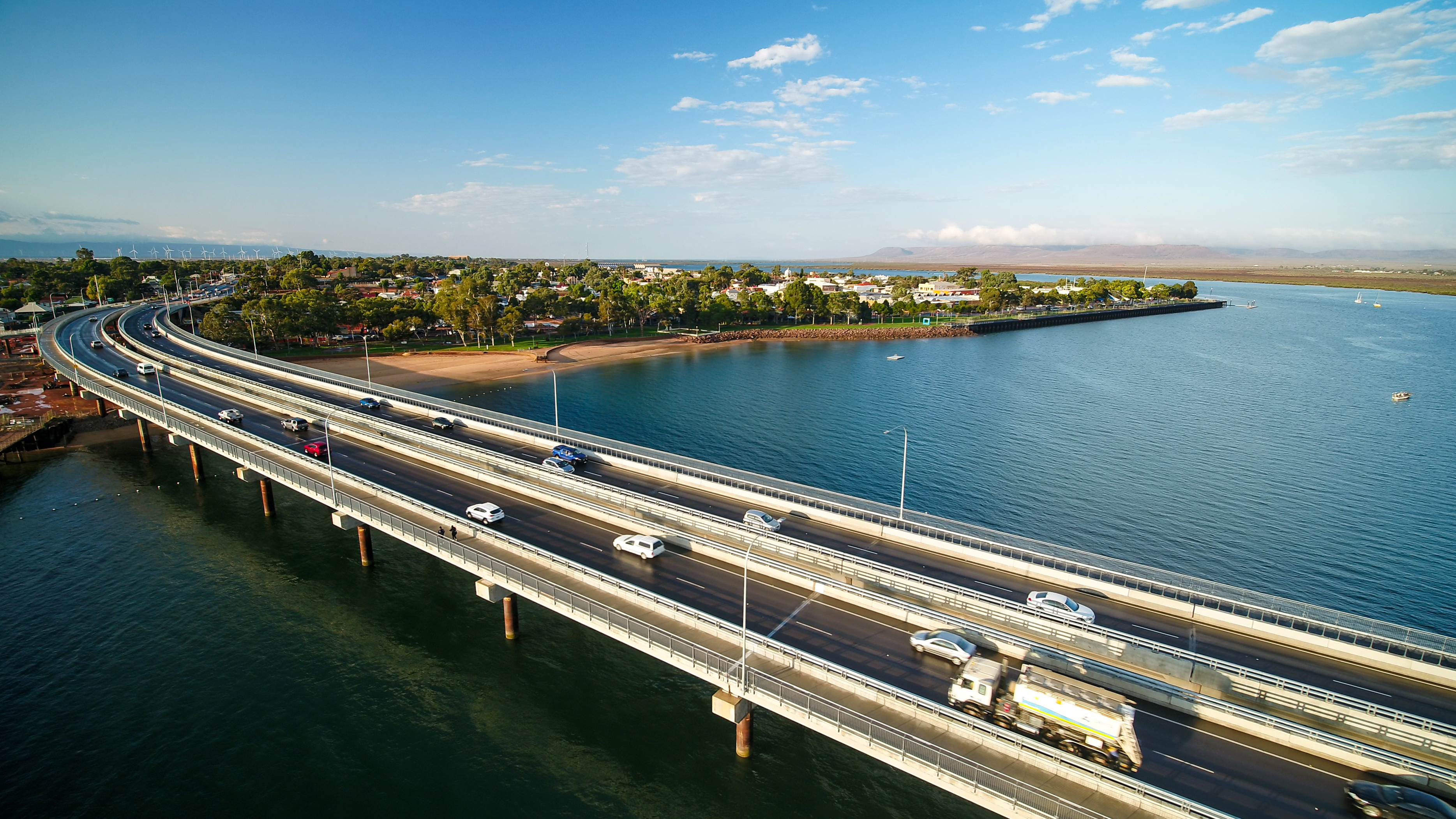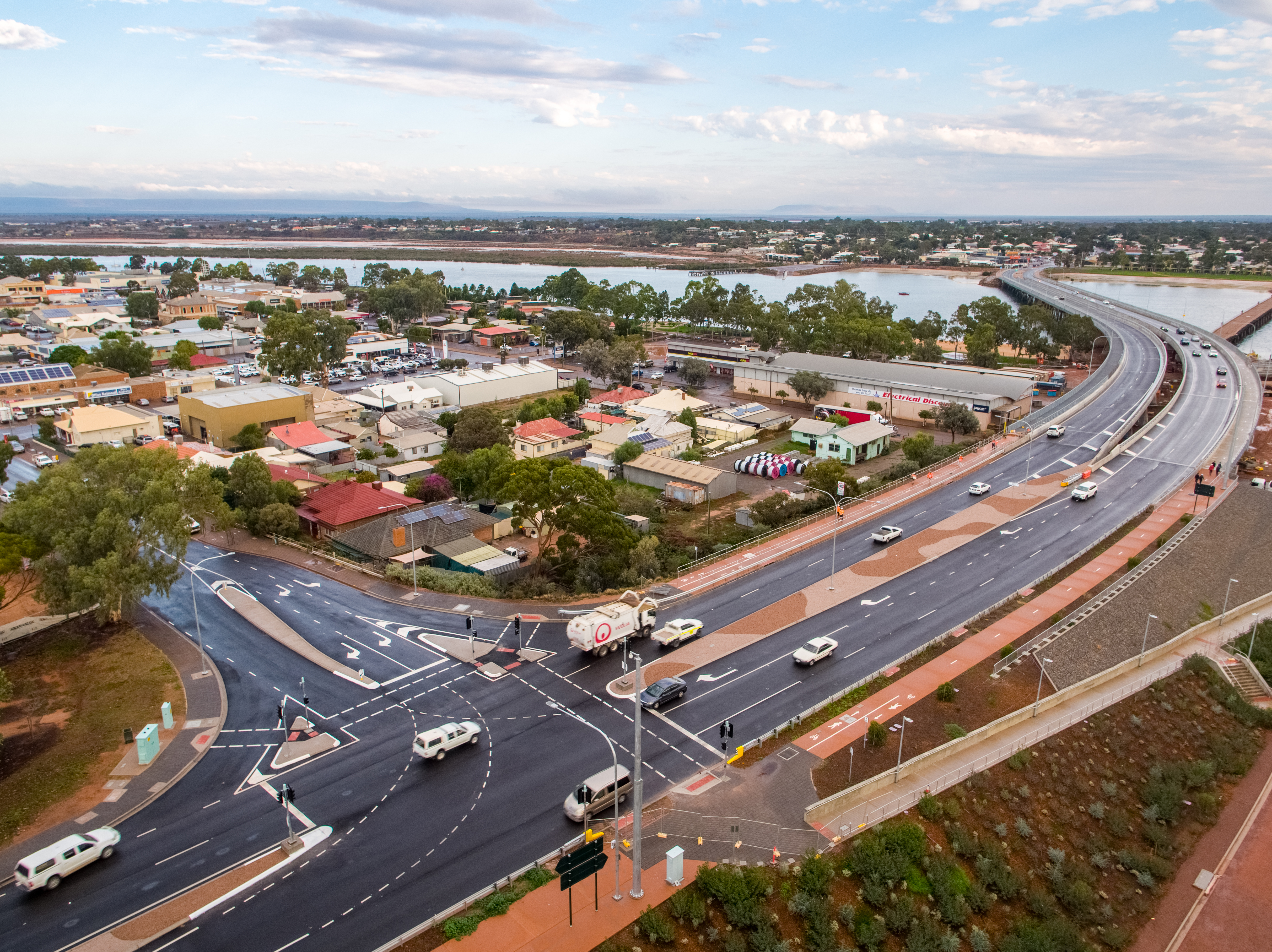- About Us
- Our Ministers
- Strategies and Priorities
- Grants and Funding
- Governance and Reporting
- Aboriginal Inclusion
- Reconciliation
- Diversity, Equity and Inclusion
- Careers
- News
- Contact Us
Major milestone for bridge duplication project at the crossroads of Australia
Wednesday, 7 June 2023
The Joy Baluch AM Bridge in Port Augusta is now operating in its fully duplicated configuration, with traffic flowing on dual lanes in each direction.

Until today, traffic had been operating on a single lane each way to allow for finishing works. The final traffic switch sees two lanes heading eastward on the new structure, and two lanes heading westward on the refurbished original structure.
The Joy Baluch AM Bridge is an important link in the National Land Transport Network, carrying more than 17,000 vehicles per day over the Spencer Gulf and providing access for commuter, commercial and freight vehicles in the northern region of South Australia.
It is also a key tourist connection to the Eyre Peninsula, northern South Australia and beyond.
The $200 million duplication has been jointly funded by the Federal and State governments, with the Commonwealth contributing $160 million and South Australian Government $40 million.
The project includes 132 bridge beams and 46 piles, constructed from around 1,500 tonnes of Australian-produced steel, and over two kilometres of concrete barriers.
It also features two of the largest precast, single-span prestressed concrete girders ever constructed in South Australia. The 36-metre-long and 1.8-metre-high girders form part of the new shared use path.
New traffic signals at the intersection of the Augusta Highway and Mackay Street, on the east side of the bridge, have also been activated.

New overhead electronic signage is also now operational. The signs, one near Flinders Terrace and the other near Mildred Street, will include important traffic management information to help motorists avoid delays, along with real-time traffic information.
Some intermittent lane and speed restrictions will continue to be required for final works ahead of the project’s full completion in the coming weeks.
The project has supported 114 full-time equivalent jobs per year during construction, which began in 2020.